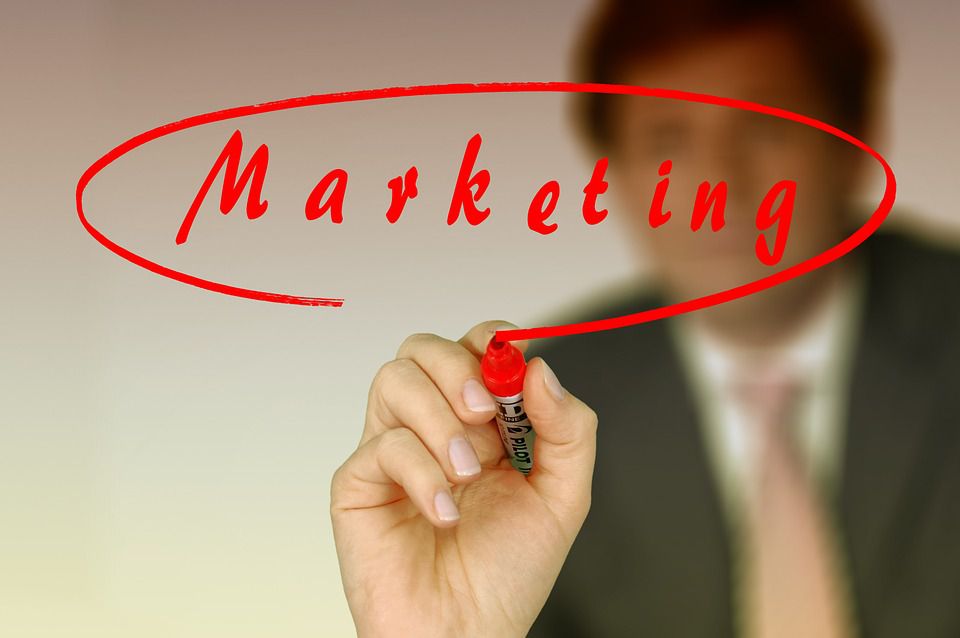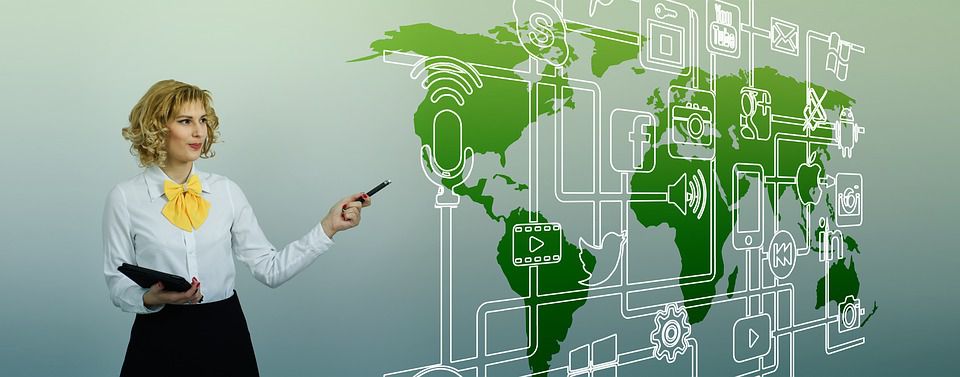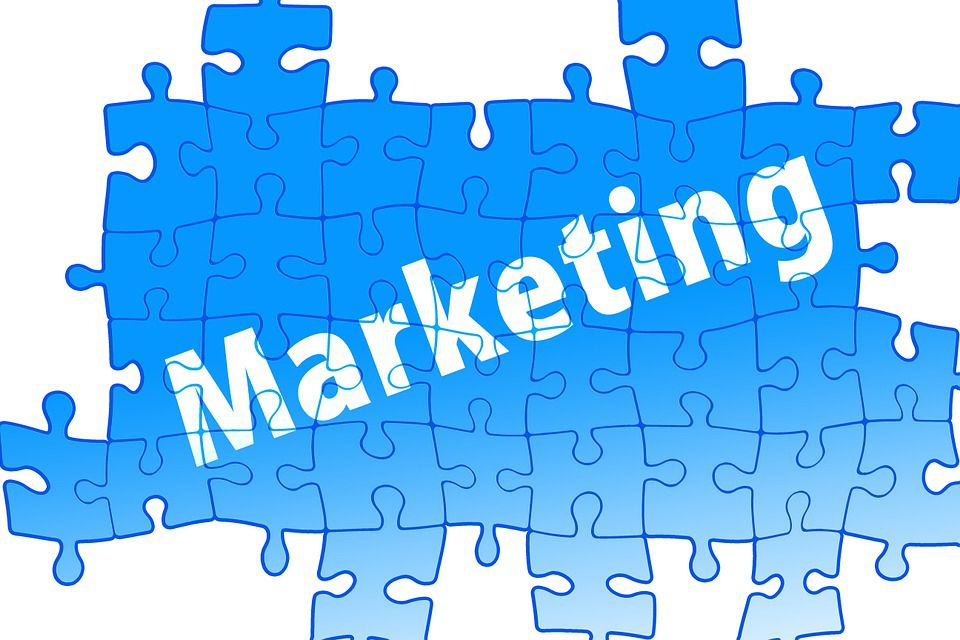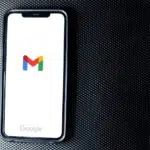Marketing is a concept that is ever-changing in modern business. So in order to make the most out of it and ensure growth, you need to monitor it closely. This is not only a way to stay on top, but to also learn to adjust to the needs of your targeted audience. So to contribute to further development of your moving business, we have a gift for you. There are certain digital marketing terms movers will find quite useful in the months to come. Some are already known and currently quite relevant, while others are new concepts to consider.

Something old, something new – DM terms for movers in 2018
These are the digital marketing terms movers should explore and invest in. Keep them in mind while you plan your marketing strategy for the upcoming year:
#1 – The use of multi-channel marketing
In 2018, every business owner from small local movers to international moving companies needs to build their strategy in terms of multi-channel marketing. The term itself is pretty self-explanatory. In the modern digital world, there is no longer such a thing as a single marketing channel. There aren’t even several. Today, marketing channels range from:
- search engines,
- native advertising,
- direct-response paid advertising,
- videos,
- all social media.
And this is just to name a few. Many moving businesses have to consider traditional marketing channels as well. The chances are you’ll need several channels working in unison for you to get enough marketing exposure. So, your best channels will, naturally, depend on your business and the type of services you offer.
You might want to consider channels that are complementary, particularly with digital marketing terms movers can use. Offline branding efforts may lead to online conversions. Various channels engage people as they move through your sales funnel. So, when you think marketing, think multi-channel.
#2 – Mobile marketing
Mobile marketing is a must-have on the list of essential digital marketing terms movers will have use of in the upcoming years. The mobile revolution continues to grow with the constant development of applications and smartphones. And it is only with the upcoming generation Z (first to grow up with mobile internet from the earliest age) that we will come to realize the importance of mobile marketing.
And so, it is only normal that a moving company should invest in exceptional mobile experience. The design of your website needs to correspond to mobile devices. And you also have to consider how your customers search, buy, and socialize with their all-important mobile devices. After all, you can find leads at any time and place today.

Google discusses mobile marketing in terms of micro-moments. People know that whatever their question, problem, or need, they have a resource with them. And all this in the palm of their hand – literally. A few taps with the thumbs or just ask the device and a solution is there. Mobile concerns run from:
- how you reach people with your brand on social media to
- how someone goes through the checkout process or fills out a form on their phone.
Make sure you understand your audience’s entire journey on a mobile device. Of course, mobile also ties into the immensely influential spheres of social media, our next checkpoint on the list of digital marketing terms movers need for 2018.
#3 – Social media marketing

In the upcoming years, social media is where the party will happen on the Internet. Thus, practically everybody’s on at least one platform. And many people spend most of their online time on their favorite social media websites. So, a large part of social media marketing is just to be present there. All you need to do is set up your page and interact with the language of the platform. Then you:
- share advice and provide knowledgeable content on Facebook.
- put some of your best company images on Instagram.
- or perhaps tell a daily story on Snapchat.
The content you provide can be strictly professional or it can have a more lay-back character. However, most social media is best when it’s fresh, funny, and personalized. People like stuff about other people on these platforms.
Demographic Marketing as an integral part of digital marketing terms movers can explore
The other part of social media is demographic targeting. Facebook is now a demographic and psycho-graphic barrage of information. it gives you the chance to target life changes (relocation, graduations, pregnancy, retirement), health conditions, financial situations, relationship changes – the list never ends. And if your offer strongly relates to a personality, lifestyle, life change, or demographic, you can target it specifically on Facebook.
#4 – Augmented Reality
This is counted among digital marketing terms movers require, that are of particular importance for eCommerce websites. Augmented reality lets shoppers experience your product on their device. They can project the layout of their new home or office before moving in. They can try on make-up or wardrobe. People can’t handle the product physically, but they can make it interact with images from their actual lives. This is something that might prove useful in terms of software for moving companies.
AR and virtual reality adoption are in their toddler stages, but the technology is already quite refined. 2018 will demonstrate the beginning of strong usage trends with this technology. As long as you are offering services online, position yourself ahead of the curve.
#5 – Reputation

2018 will be the year when movers that don’t have their online reputations under control will really feel the heat. A big part of gaining a position in the moving industry market is to get people to talk about you. Talk and also recommend you to others – thus, you end up with more leads. People will talk about your brand online, and much of what they say lingers in the digital world.
Consumers expect to be able to get “word-of-mouth” about a moving business online. So, product and service review will have a big influence on whether or not people hire you. This is why it is important to get a handle on your reputation. You can start with how you deliver your offer in the first place. Delighted customers are a marketer’s best friend. But also, be proactive. Follow up with emails and calls. Ask satisfied customers to leave you reviews and recommend you on social media. In the end, a strong reputation is second to none in the online marketing arsenal.
#6 – Personalization
Internet technology is doing more and more to increase the personalization of the user experience. Search engines remember what you searched for and know where you are (physically), so they can customize your results.
- Re-targeting campaigns cookie your browser to show you ads related to what you’ve shown interest in already.
- Facebook uses an algorithm that understands what you like so it can deliver more of it.
- Emails come in sequences that connect to the exact information you requested from a business.
All of this is leading towards more personalized, targeted advertising. Everything you do online leaves a digital trail. And all the major internet companies like Google, Facebook, and Amazon use that data to create an intimate portrait of who you are and what you want to see.
Moving company marketing ties into this data to target ads. In 2018, your advertising should be more targeted towards those most interested in your offer than ever before. Likewise, you shouldn’t be wasting less money displaying ads to people who are not really interested in your offer.
Personalized content delivery is a long-term online marketing trend. The better the Internet understands who you are, the more content will be connected to your lifestyle. And the same goes for your customers – that is why personalization is on the list of digital marketing terms movers need.
#7 – Automation and AI
The personalization we’re discussing won’t be possible without the growing technology that allows for marketing automation. Two keys for smaller businesses are:
- CRM software and
- email marketing software.
Just consider the multi-channel and personalized nature of digital marketing. Then it becomes clear that it can’t all happen through manual tactics. CRM software lets you put various communication methods into place that happen in an automated sequence. You can categorize an audience, then design and deliver content through automation.
Likewise, marketing software takes the complex, multi-channel marketing landscape and makes it comprehensible for the average business owner. You don’t just need to track people’s behavior, you need to analyze it so you can create an action plan. And software puts the necessary elements in place.
Content delegation algorithms
Last, we have the growing predominance of artificial intelligence within the algorithms that dictate how content is delivered on Facebook, Google, and other platforms. Some argue that today there are no people who completely understand how Google’s search algorithm works. In 2018, marketers will have to contend between the efficiency AI offers and the control they have to surrender to the technology.

While you can’t hope to understand the algorithms themselves, you can understand what they’re trying to do. The goal is to feed users an increasing diet of irresistible content that keeps them glued to their devices. As this behavior becomes ingrained, the brand related material will become a native part of the message. Effective marketing campaigns will blend with the content people enjoy to read in 2018, thus making it less recognizable.
#8 – Social and Experiential Marketing – two digital marketing terms movers can explore for the price of one
2018 is part of a trend in marketing which is rooted in the digital experience. It’s the sum of everything we’ve noted here, plus the trends of moving industry 2017.
Social marketing

The digital experience is motivating marketers to adopt a totally new level of authenticity and transparency. It’s a paradigm shift where marketing is moving from telling people about products and services to contextualizing their message within stories, ideas, and lifestyles people care about.
We see this in the effectiveness of integrating social purpose into marketing. Given a choice (which consumers clearly have), people prefer to buy from companies that give back to communities and worthy causes. A marketing message delivered in this context can be more effective than a straight direct-response ad.
Younger consumers are developing a distinct aversion to manipulative ads, but are more welcoming of brands that they see as a fit for their lifestyles. This is facilitated by social media, where personalized, native brand material fits in with other content people share and enjoy.
Experiential marketing
In 2018, social media will grow as a platform for experiential marketing. This is why it is so well regarded as one of the more important digital marketing terms movers can find useful. After all, this is where people interact and share brand material because it fits into the experience they’re already participating in. This will be a kind of elixir for marketing, where distaste for forced messaging is replaced by acceptance of content that’s a welcome aspect of our lifestyles. Digital technology is a remarkable tool for telling a story:
- It’s a story coming from many channels that converge on a small, mobile device.
- It is part of our social life, but also a type of commerce that must prove itself.
- And it can be so personalized to our tastes that it’s uncanny. Yet it’s guided by vast, artificial intelligence.
In 2018, use technology to create a bold brand that has a personality of its own. It cares about people, cares about the world. It has nothing to hide, and nothing to prove other than the certain value it delivers.
To conclude our assessment of digital marketing terms movers should focus on

Digital technology connects us in unprecedented ways. Just look at this list of terms and trends. They all connect and build upon each other. How that connection will take shape in 2018 is uncertain, but it may become a new term for the most important trends to watch for in 2019. All that you can do is closely monitor moving industry news in order to better comprehend the best course of action.






